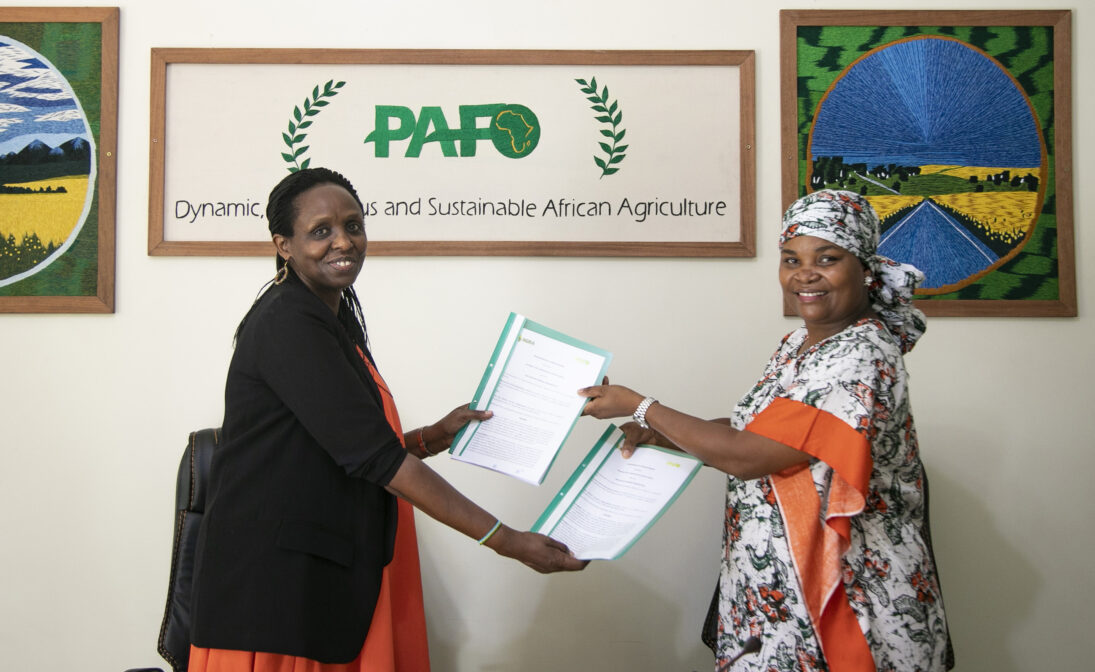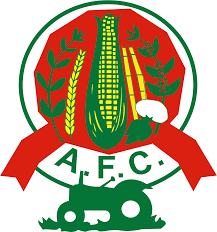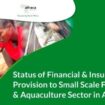By Tilda Nabbanja, Team Leader Financial Literacy, Bank of Uganda, and Mariam Zahari, Policy Specialist, AFI
Bank of Uganda (BOU) has long considered financial literacy a crucial component for enhancing financial inclusion, requiring attention both on a national scale and for targeted vulnerable groups, including Uganda’s sizeable refugee population.
With 1.4 million refugees and asylum seekers living within its borders, Uganda is the largest refugee host country in Africa. Most have fled conflict in Burundi, Democratic Republic of Congo, Rwanda, Somalia and South Sudan. They are housed within settlement camps in the country’s central, northern and western regions.
Speaking a mixture of English, French and Kiswahili, this highly diverse group are unified in the need to strengthen financial literacy – a key recommendation of the Roadmap to the Sustainable and Responsible Financial Inclusion of Forcibly Displaced Persons (FDPs) – helping to improve how they spend, budget, borrow, invest and plan for a future that is not solely reliant on aid.
Laying the foundations of change, BOU coordinated the development of the Strategy for Financial Literacy in Uganda (SFLU), a five-year plan that outlines financial literacy as having the knowledge, skills and confidence to manage money well. It offers key lessons through its roles, experiences and recommendations:
Develop a national strategy
Uganda’s SFLU (2019-2024), its second national financial literacy strategy, explicitly references refugees as a special interest group to which organizations and trainers offering financial literacy programs are expected to deliver activities.
It clearly defines refugees, presents guidance on the most appropriate modes of dissemination of financial literacy information for refugees and highlights specific topics that should be incorporated into financial literacy programs for refugees. This renders refugees a part of measures taken by national stakeholders to increase financial literacy nationwide and works towards ensuring that they are not excluded or left behind.
Enhancing these aims is the country’s financial literacy curriculum, which covers seven modules including personal financial management, savings, loans management, investment, insurance, planning for retirement and financial service providers (e.g., making payments, consumer protection and updates on economic reforms).
Demonstrate policy leadership
Financial policymakers and regulators can show policy leadership by including refugees into the financial literacy strategy lifecycle and other financial inclusion strategies. This sends a clear signal to national stakeholders on priority policy issues and mandates the pursuit of advancing the financial inclusion for this vulnerable group.
Caution and diplomacy must also be exercised to ensure that FDPs are accepted by financial literacy and inclusion stakeholders given the political nature of forced displacement, particularly across national borders.
Drive multi-stakeholder coordination
BOU is the primary coordinator of financial literacy in Uganda. Its leading role in developing the SFLU brought together the country’s ministry of finance, financial sector regulators, regulated financial service providers and other key stakeholders with the common goal of unifying for the strategy’s formulation, coordination and implementation.
Under BOU’s direction, various key stakeholders enhanced the design and development of outreach programs and effectively scaled up the financial literacy and inclusion agenda in Uganda.
These partnerships have enabled BOU to implement financial literacy programs in remote regions with key stakeholders aiding in the design, development and implementation in alignment with the SFLU’s work plan. As part of the SFLU, BOU trained 1,800 financial literacy trainers in 2019, empowering them to offer tailored and appropriate training to different target groups, including FDPs. In turn, these financial literacy trainers are able to provide properly contextualized curriculums to meet the unique needs of FDPs.
Keeping BOU open to new opportunities, a coordination mechanism was established so that key stakeholders could request partnerships with the central bank towards implementing financial literacy programs and empowering people in Uganda with a better understanding of financial matters. BOU also invests in capacity building by carrying out quarterly financial literacy training of trainer workshops and stakeholder meetings as part of financial literacy programs.
BOU monitors the work of key stakeholders by providing them with ongoing guidance through annual monitoring and evaluation of their SFLU activities. This is part of BOU’s work to map existing financial literacy programs and their implementation progress, as well as initiate new programs as needed, in a manner that avoids duplication and encourages complementarity.
Partner with humanitarian and forced displacement stakeholders
BOU encourages humanitarian and forced displacement stakeholders to seek guidance and technical support from the central bank on promoting financial literacy in Uganda for refugees and host communities. This includes:
- Providing advice to local stakeholders wanting to roll out financial literacy interventions that foster collaboration, prevent any duplication of activities, understand existing knowledge gaps and maximize resources.
- Disseminating financial literacy training materials (e.g., SFLU, financial literacy core messages and guides for trainers).
- Providing technical support to stakeholders by connecting them with BOU financial literacy certified trainers to conduct training for refugees.
BOU has been collaborating with the United Nations Capital Development Fund, World Food Program (WFP), International Labor Organization (ILO), CARE International and other international organizations that are implementing or are intending to implement financial literacy training for refugees. ILO closely references and aligns with the SFLU Financial Literacy Curriculum and is in final stages of developing its own curriculum to focus on refugees. It is ready for roll out in 2021. The Finnish Refugee Council is similarly about to commence financial literacy training for refugees in 2021, which is supported by WFP. In May 2019, the Centenary Bank under the EIB Technical Assistance Project successfully trained 1,484 refugees in Isingiro, Kamwenge, Hoima, Masindi, Adjumani, Yumbe, Arua and Koboko districts.
Together, these stakeholders have been able to adopt and adapt the SFLU Financial Literacy Curriculum and design tailored materials for effective dissemination through financial literacy training in refugee camps and host communities in Uganda.
Leverage digital channels
The ongoing COVID-19 pandemic has underscored the importance of digital channels, renewing our reliance on technology and the internet to maintain daily social and economic activities. With limited access to digital channels, however, FDPs are significantly marginalized and disadvantaged in COVID-19 responses and recovery measures.
Aiming to raise awareness of its benefits, BOU has promoted the use of digital channels through its financial literacy website, social media, television, radio and phones.
As technology develops and the use of digital financial services swiftly increases, exploring new digital channels for implementing financial literacy programs becomes essential but should be carefully considered as refugees often tend to lack access to mobile phones and the internet or have low levels of digital literacy.
Stakeholders wanting to explore the provision of digital financial literacy-related interventions for refugees must provide digital devices for refugee households and ensure that apps incorporate financial literacy concepts into their design. Empowering refugees to gain financial literacy and ably handle digital gadgets will ease their access to quality financial services, improve their information and knowledge of consumer protection and enable them to transact safely through mobile money, internet banking and other platforms.
A future that leaves no one behind
Stigma and discrimination surrounding refugees often leaves them excluded from our systems and societies. However, BOU’s experience demonstrates that financial policymakers and regulators can play a transformative role in financially including refugees. Financial literacy is rolled out to all people in Uganda regardless of age, color, origin, ethnicity or nationality, thereby bridging the gap between host communities and refugee camps, enabling the people to work together for the benefit of all.
By empowering refugees to make more informed financial decisions through financial literacy and refugee-centric programs, they are also encouraged to use formal financial services and products that suit their evolving financial needs. Moving forward, we encourage more financial policymakers and regulators to take these recommended actions to ensure that FDPs are included in national financial literacy efforts, become empowered and live with dignity, as their host communities do.
This article has been first published at Alliance for Financial Inclusion





